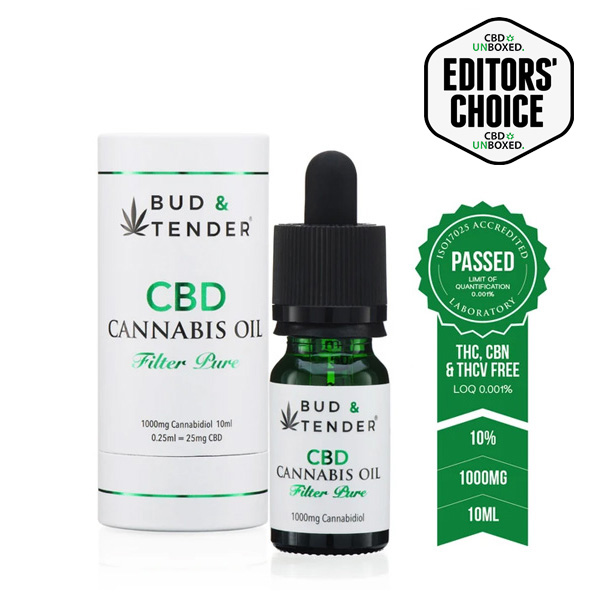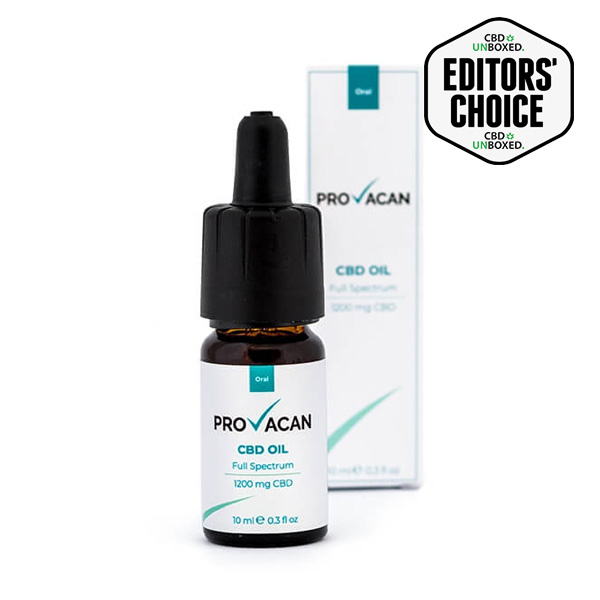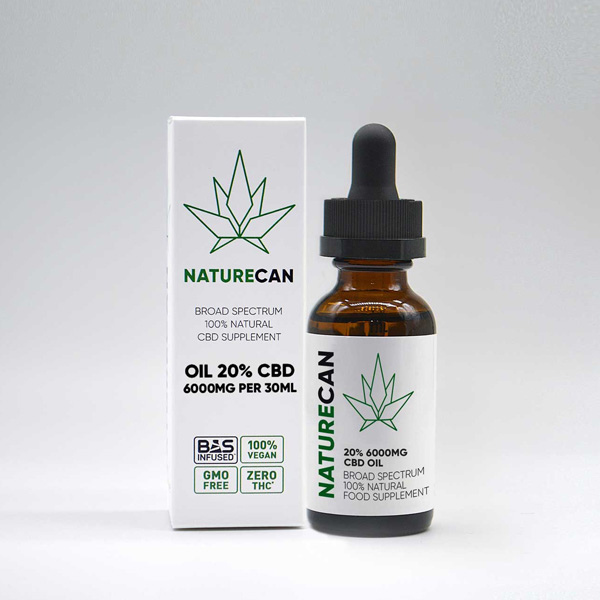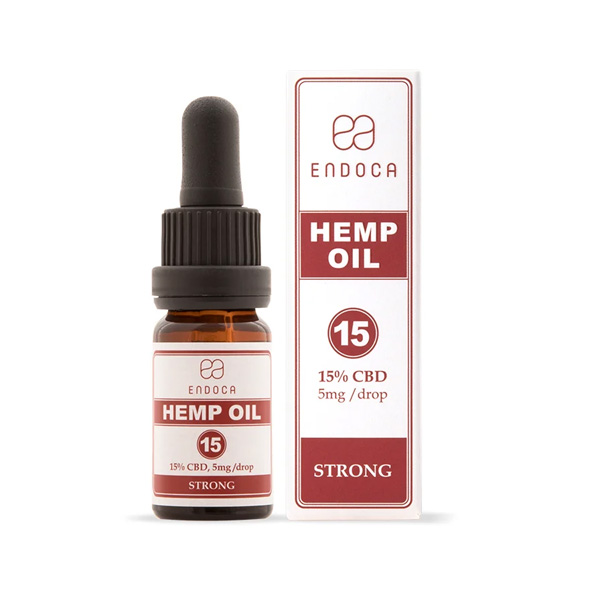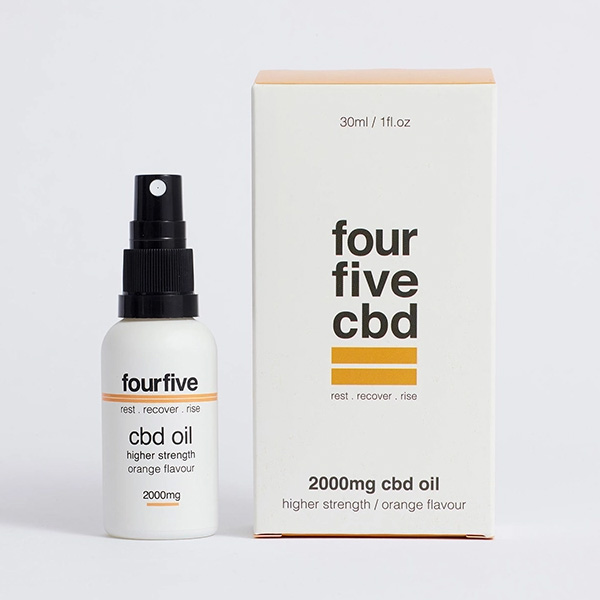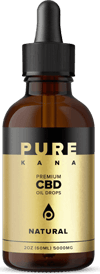We explain what tests are carried out by CBD brands and what to look for when reading the Certificates of Analysis (CoA).
CBD Testing is Critical
As CBD is a relatively new industry, many products on the market contain pesticides, herbicides, mould, fungi and dangerous mycotoxins.
CBD brands need to play the transparency card with their customers to guarantee that the products they are purchasing contain the exact amount of CBD advertised on their site, without any THC (the intoxicating compound in cannabis) and that they are free of pesticides, herbicides, mould, fungi or dangerous mycotoxins.
This is why most leading CBD products have gone through a rigorous process to ensure they are tested for quality and potency. To do so, companies use cutting-edge testing equipment and partner with third party laboratories to test all their products.
The tests carried out focus on various dimensions to guarantee the quality and safety of each batch.
- Over 200 different pesticides
- Heavy Metals like Arsenic, Lead, or Mercury
- Aflatoxins and Mycotoxins
- Terpenes
- Microbes
Most of the brands reviewed by CBD Unboxed allow customers to see their Certificates of Analysis (CoA) online, which break down:
- Cannabinoid profile
- Terpenoid profile
- Microbial profile
- Heavy metals profile
- Pesticide analysis
We take you through the key tests you should look for and how to find and read the Certificates of Analysis to ensure the products you are buying are safe for consumption.
Take our CBD Quiz
If you are wondering what CBD product to buy, be sure to take our CBD Quiz which has been designed specifically to identify the product and strength that is best suited to your personal needs.
CBD has been proven to have analgesic (pain relief) and anti-inflammatory properties, as well as help people with insomnia.
What is CBD?

Cannabidiol — also known as CBD — is one of the multiple chemical compounds found in hemp (cannabis sativa) or marijuana plants. It is also known as medical cannabis, which is a broad term used to encompass any product, treatment, or medicine that includes cannabis-derived ingredients.
It is not however, the same as tetrahydrocannabinol (THC) found in marijuana and contains none of the psychoactive properties associated with it, which means CBD won’t get you “high”.
Hemp vs Cannabis: What’s the Difference?
Different parts of the cannabis plant are either defined as hemp or as cannabis and marijuana.
- Hemp: hemp is the stalks, stems and sterilized seeds of cannabis sativa (“Cannabis Sativa” is the scientific Latin term that defines hemp, cannabis or marijuana plant species).
- Cannabis and Marijuana: the leaves, flowers and viable seeds of cannabis sativa.
The varieties of cannabis that are regulated, legal and available in the UK are those that produce less than 0.2 percent THC. And given the fact that most THC is in the flowers, CBD products are primarily made from hemp (stalks, stems and sterilized seeds of cannabis sativa) which contain very little THC and are safe to consume.
This is why CBD products are legal in the UK if they contain less than 0.2% THC.
CBD Testing

Many popular and common products are often tested at various stages of production, to provide authentic data and results. This can be after the original extraction and once the final product has been produced.
The hemp extract is the base ingredient of the product, as such many tests are done, to create detailed reports, on the hemp before it is added to the final product. An examination of variations of the product is also performed, before allowing the product to be completed. It can be tested once the final product is made and ready to use.
The benefit of testing hemp extract at multiple stages of production is that it can help maintain an accurate account of THC and CBD measurements present in the product at any one time. This is done because when other ingredients are mixed into the product, during the manufacturing process, it can cloud traces of hemp compounds.
CBD testing can be done in-house or externally, in a third-party lab. Ideally, a company will perform an external test by a government approved or fully licensed lab.
Third-party testing is better because they can verify the claims made by an in-house examination. This increases the authenticity of the product, and make the company a trustworthy brand.
Certificates of Analysis
Once a CBD batch has been tested, laboratories will issue a certificate of analysis (CoA). Most trusted CBD brands will publish their CoAs on their own website and allow customers to check the CoA of the product they have bought by putting the batch number into an online search form.
What is a Certificate of Analysis (COA)?
A CoA is a document that is used to verify that the CBD products that have been put on the market meet specific parameters, mainly of a physicochemical nature, such as composition, humidity, acidity and others that comply with the contractual conditions. It can be issued by a certification body (appointed by the exporter or importer) or by the exporter’s laboratories when trusting relationships between the parties have already been established. The analysis can be performed at the factory or warehouse of the exporter or at the point of shipment. This is usually done on samples that represent a certain percentage of the total volume of goods.
What Does a CoA Look Like?
There isn’t a one size fits all and certificates of analysis will have a slightly different format depending on the laboratory that has issued the certificate. However, most certificates will present the same information. Below is the breakdown of Endoca’s certificate of analysis.
Header

This is the COA header. It shows some information about the company that requested the tests (e.g. Endoca), the product tested (20% CBD/CBDa), the laboratory that carried out the tests (Endoca VB – an internal lab part of Endoca), the legality of the report (certification), the person in charge of supervising the tests and the date the tests were carried out.
Cannabinoids Potency Testing
The first section of the report details the most common cannabinoids present in the batch tested.
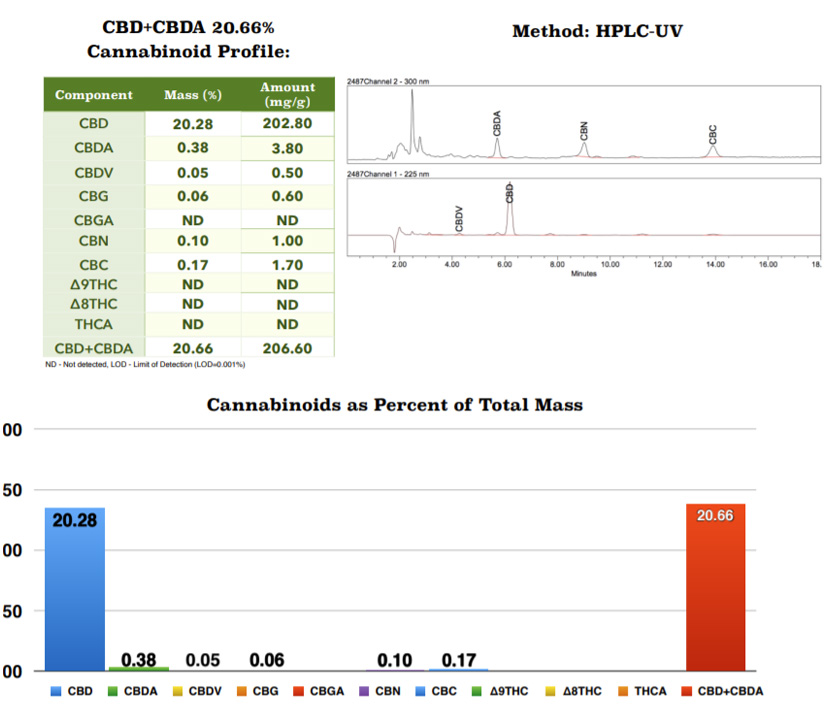
The cannabinoid potency test allows CBD manufacturers to accurately determinate the concentration of each cannabinoid in the product. Their potency level is known by completing an analytical technique called high-performance liquid chromatography (HPLC). Molecules within a sample are separated, identified, and quantified with the help of a UV or fluorescent detector.
This not only helps CBD brands ensure that the correct level of CBD is present within the oil (e.g. 3% concentration vs 10%), but it also gives customers full-transparency regarding what other cannabinoids – including CBG, CBC and CBDV – are present.
This is critical as these additional cannabinoids can boost the effectiveness of a CBD oil when compared to just CBD alone. This is what is known as the ‘entourage effect’.
On top of looking for the presence of other cannabinoids, CBD companies check that there aren’t any illegal cannabinoids present such as THC, CBN or THCV. This test provides the exact number of Tetrahydrocannabinol (THC) present. This in turn distinguishes whether it is a legal or illegal product. This test must be conducted by an accredited ISO 17025 THC test from an authorised testing centre.
The potency of any product must be marked on the packaging of whatever type of CBD product you choose to purchase.
For example, a 10ml bottle of CBD oil could have a potency of 300mg, 1000mg or 1500mg. Seeing as higher potencies are best suited for more severe ailments, it is recommended to check the overall concentration of CBD before buying a product.
| CBD / Bottle | Concentration (%) |
| 300mg | 3% |
| 600mg | 6% |
| 1500mg | 15% |
| 2400mg | 24% |
The tests will not only show the amount of CBD present in the batch, but also other cannabinoids such as Cannabidiol acid (CBDa), Cannabichromene (CBC), Cannabichromene acid (CBCA), Cannabigerol (CBG), CBN, Tetrahydrocannabinol (THC) or THCA.
- CBDa: Cannabidiol acid (CBDa) is a raw chemical compound found in the resinous glands (trichomes) of hemp plants. “Raw” in this case means “not heated and not cooked”.
- CBC: Cannabichromene (CBC) is a lesser-known cannabinoids which is believed to play a crucial role in giving cannabis its anti-inflammatory, antiviral and analgesic properties. CBC is synthesised from CBGa.
- CBCa: Cannabichromene acid (CBCa) is a precursor to the biosynthesis of CBC.
- CBG: Cannabigerol (CBG) has neuroprotective effect
- CBGa: CBGA (the acidic form of CBG) is the first cannabinoid formed in a plant. From there, CBGA is converted to THCA, CBDA or CBCA by enzymes. CBGA is the primary precursor to all cannabinoids that we know.
- CBN: Cannabinol (CBN) comes from the oxidation and decomposition of THC from a hemp plant, meaning that when THC is heated and exposed to Co2 (oxygen), it converts to CBN. The compound has a mild psychoactive response, slightly more so than CBD but much less than THC.
- THC: THC is an acronym for tetrahydrocannabinol, although its scientific name is delta-9-tetrahydrocannabinol. THC is one of the essential cannabinoids in marijuana; it is one of the most common in plants and is responsible for psychoactive effects, but it also has medicinal benefits.
- THCa: In their original form, hemp flowers contain minimal THC. However, they provide a large amount of the chemical compound tetrahydrocannabinol acid (THCA), which does not have any psychoactive effect because it does not contain active THC. THCA is converted to THC during decarboxylation. This occurs naturally over time under the influence of heat and ambient light, but most of the THCA is turned when hemp heats up during consumption.
Terpenes Testing

Terpenes are produced by the cannabis flower in the same way cannabinoids are, and they are responsible for giving CBD oil its individual flavour profile. You are already familiar with them as terpenes are what give a lemon its citrusy smell.
When it comes to CBD oil, not only do terpenes determine the flavour and smell of the oil, but they also work together with cannabinoids to enhance the effectiveness of the CBD oil. So terpenes are also part of the ‘entourage effect’.
The key terpenes found in CBD oil are:
- Myrcene (known to have relaxing and anti-inflammatory properties)
- Limonene (anti-fungal and antibacterial properties)
- Pinene (anti-inflammatory and antiseptic properties)
- Linalool (stress-relieving and anti-depressant properties)
- Caryophyllene (known to reduce anxiety and inflammation)
- Humulene (anti-inflammatory and antibacterial properties)
Flavonoids Testing
Flavonoids are phytonutrients found in the leaves, flowers and trichomes of the cannabis plant. They play a role in the plant pigmentation, taste and smell and along with cannabinoids and terpenes, they bind with cannabinoid receptors to contribute to the ‘entourage effect’.
Heavy Metals Testing

Hemp, like every other plant, tends to absorb heavy metals from the soil, water and air. These heavy metals – which include arsenic, mercury, lead or cadmium – can be passed into the cannabis extract if present in the hemp, resulting in the consumer absorbing some of it into their own system. Due to the high toxicity of these heavy metals, human consumption could lead to serious health consequences and this is why CBD extracts are screened for these heavy metals to ensure their products are safe for human consumption.
Pesticides Testing
Pesticides are used in many forms of commercial farming, they are known to cause serious harm to the health of consumers, including cancer and mutation of their DNA, resulting in certain diseases.
Whilst most CBD companies grow their hemp organically without the use of pesticides, they test their CBD extracts for 67 different pesticides to ensure their products are clean and safe to consume.
Microbiological Testing

To avoid any risk of microbes such as Shiga toxin E. coli, salmonella, or Listeria being present in their CBD extracts, which could lead to serious illnesses and health complications, CBD products go through microbiological tests to ensure they are microbe free.
Residual Solvents Testing
Solvents such as butane and ethanol can be used to extract cannabinoids, terpenoids and flavonoids from the cannabis plant as well as during the filtration process, so it is key for CBD manufacturers to ensure that there are no residual traces of these solvents in their CBD extracts. Although most CBD companies use supercritical CO2 during their extraction and filtration process, it is vital for them to test their CBD extracts for solvents such as ethanol, benzene, propane or methanol which could come from a contaminated soil from nearby farms.
Mycotoxins Testing
Mycotoxins are naturally occurring toxins produced by certain moulds and fungi which can cause cancer and mutation of your DNA. Seeing as mould can grow on a variety of different crops, including hemp, it is vital for CBD manufacturers to run mycotoxins test on their CBD extracts. CBD companies will usually test for the 5 main mycotoxins including Aflatoxin B1, Aflatoxin B2, Aflatoxin G1, Aflatoxin G2 and Ochratoxin A, to ensure their products are clean and safe to consume.
How To Choose Quality CBD?

As with anything you ingest, the source and quality of your CBD products are important. We would always recommend looking at five main aspects before choosing your CBD products.
CBD Oil from Organic Hemp
Hemp can be grown in just the same way as any other plant – mass-produced and using pesticides and GMOs for the greatest profit, or grown organically with care and attention to provide a fantastic end product.
The best CBD is produced from organic hemp that has benefited from plenty of rain during the growing process. While hemp can physically be grown in many countries, it grows best when the temperature is in the low twenties Celsius. Therefore, the location of the hemp farm is important to ensure the optimum environmental factors are accommodated.
And seeing as cannabis plants can be stressed out by the weather, resulting in a higher THC content (above 0.2%), it’s important to ensure that your CBD oil comes from organic hemp which has been grown in the right part of the world.
Less Than 0.2% THC
Cannabis flowers and extracts usually contain two cannabinoids known as THC (tetrahydrocannabinol) and CBD (cannabidiol). Yet the exact percentage of each can vary greatly, depending on the plant variety and the growing technique used.
THC is the main psychoactive compound in cannabis that produces the high sensation, while CBD has been associated with health benefits.
The EU common agricultural policy states that cannabis plant can be grown for industrial uses, provided their THC content does not exceed 0.2 %. That’s in the plant, not in the CBD product you buy.
So when buying CBD oil from a shop or online retailer, be sure to check that their products contain less than 0.2% THC.
Clean Extraction Method
Once the hemp is grown and harvested, the CBD needs to be extracted from the plant. There are several methods for doing this, including the use of carbon dioxide (CO2). This produces the cleanest and purest CBD extract but can be expensive to do as the machinery required is not cheap.
Alternative methods include using solvents such as ethanol or plant oils (eg olive oil) to extract the CBD.
This can lead to less-pure CBD extract, as small amounts of solvent or oil can remain, although most companies using this type of extraction method will usually test their CBD extracts to ensure they are solvent free and safe to consume.
Tested by Independent Labs
Another thing we would recommend checking is whether or not your CBD oil has contaminants. That’s because cannabis plants readily absorb heavy metals, pesticides, and other potentially harmful chemicals that may be in the soil or water.
To ensure your CBD oil is free of those harmful chemicals, it should be tested frequently while the hemp is growing, and finished products should also be tested, using validated methods.
The extract should be tested and certified by a third-party laboratory to confirm the quality of the CBD. Organic CBD should be GMO-free, pesticide-free, and as pure as possible. In the UK and EU, CBD must register THC content of 0.2% or lower.
Most reputable companies selling CBD oil in the UK publish their lab results on their website. Below are a few examples of companies that play the transparency card with their customers, which we have tested and reviewed individually to help you make an informed decision:
- Bud & Tender CBD Review
- Blessed CBD Review
- Provacan CBD Review
- Hempura CBD Review
- Endoca CBD Review
- Naturecan CBD Review
- Medterra CBD Review
- Love CBD Review
- Four Five CBD Review
Strength to Match your Needs
The CBD level within any product should be of a suitable strength to match your needs. Every person is different and their body will respond in a slightly different way, so the level may partially be down to personal preference.
However, higher concentrations might be more suitable for treating different ailments to lower concentrations, and it is wise to check the level of CBD in every product you use.
As a rule of thumb, people looking to use CBD for sleep, anxiety, digestion, relaxation or stress might take between 10mg and 25mg of CBD daily and use the lowest strength (300mg to 600mg), whilst those using CBD as a pain relief for conditions such as severe arthritis, back pain or migraines may want to take 30mg to 50mg of CBD per day and use higher concentration products (1200mg to 2400mg).
All CBD products must be labelled with strength or potency. Labelling the strength of CBD present in any one product isn’t the same across the board. The product itself and size of the packaging can alter how it is labelled.
If you are using CBD oil, for example as oil dropper or oral spray, then you may need to calculate the percentage concentration of your CBD oil. This is because the number that represents milligrams of CBD will not be equal to its capsule counterpart.
Sometimes the percentage is clearly labelled, but not always. Here is a table to help you calculate the CBD strength in liquids based on stated mg in bottle and volume.
| CBD / bottle | 10ml Bottle | 30ml Bottle |
| 250mg | 2.5% | 0.8% |
| 500mg | 5% | 1.6% |
| 1000mg | 10% | 3.3% |
| 1500mg | 15% | 5% |
| 2000mg | 20% | 6.6% |
| 3000mg | 30% | 10% |
So a 10ml bottle containing 1000mg of CBD will have a 10% concentration (10% CBD and 90% oil carrier), whilst a 30ml bottle containing 1000mg of CBD will only have a 3.3% concentration. So one drop of the 10ml bottle will have 3 times more CBD than the same drop of the 30ml bottle.
If the percentage is below 2.5% then you may not feel the effects. Weaker strengths (below 2.5%) are often used for pets that suffer from anxiety, pain or inflammation.
Like with capsules start low and work up to a higher concentration until you feel the positive changes. Based on the table above a good starting point would be a 10ml bottle with 500mg to 1000mg of CBD, as the concentration would be between 5% and 10%.
When it comes to CBD capsules, the bottles could read 10mg, 1500mg and anywhere in between. This could be the strength of CBD within each capsule or in the bottle as a whole.
Due to this, it is important to read the label carefully, so that you understand the strength of each capsule.
Here is a table to demonstrate CBD strength per capsule and the value that may appear on the bottle.
| CBD / Bottle | # Capsules | CBD / Capsule |
| 300mg | 30 | 10mg |
| 300mg | 60 | 5mg |
| 600mg | 30 | 20mg |
| 600mg | 60 | 10mg |
| 1500mg | 30 | 50mg |
| 1500mg | 60 | 25mg |
CBD stays in your system, which is why many people find the benefits of CBD over time. So again, start low, with a 5mg or 10mg strength and build up over time, if you are not experiencing the benefits after a week.
Official Customer Reviews
One of the best ways to do this is by looking at official customer reviews from programs such as Trustpilot or Reviews.io, which most of the leading CBD brands use.
The feedback provided on the platforms is from real customers who have purchased their products, so will usually get a more objective feedback than “unofficial” reviews hosted on a CBD brand’s own website.
Some celebrities have also been using CBD for personal health reasons and have talked extensively about the benefits they’ve experienced. These include:
- Whoopi Goldberg – Glaucoma
- Michael J Fox – Parkinson’s Disease
- Sir Patrick Stewart – Arthritis
- Jennifer Aniston – pain, stress and anxiety
- Montel William – Multiple Sclerosis
- Morgan Freeman – Fibromyalgia
The 10 Best CBD Oils
With over 150 CBD brands on the market, it can be difficult to choose the right CBD product. This is why the CBD Unboxed team has tried and tested most CBD products and brands available in the UK market and assessed them across 6 key areas:
- Efficacy
- Taste
- Value for Money
- Product Range
- Customer Reviews
- Shipping & Delivery
- Lab Certification
Based on our findings and whilst every person will be different, we would recommend the below five CBD oils to start with.
- 10ml bottle (1000mg of CBD)
- 10% concentration
- Approx 2.5mg of CBD per drop
- Broad spectrum CBD
- Zero THC
- Organic MCT carrier oil
- Entourage effect
- 30ml per bottle (3000mg of CBD)
- 10% concentration
- Approx 2.5mg of CBD per drop
- 99%+ Pure CBD (isolate)
- Zero THC
- MCT oil carrier
- 10ml per bottle (1000mg of CBD)
- 10% concentration
- Approx 4mg of CBD per drop
- Full spectrum CBD
- Less than 0.2% THC
- Hemp seed oil carrier
- Entourage effect
- 10ml bottle (1200mg of CBD)
- 12% concentration
- Approx 3mg of CBD per drop
- Full spectrum CBD
- Less than 0.05% THC guaranteed
- Olive oil carrier
- Entourage effect
- 10ml bottle (2000mg of CBD)
- 20% concentration
- Approx 8mg of CBD per drop
- Broad spectrum CBD (THC free)
- Organic MCT carrier oil
- Entourage effect
- Suitable for vegans
- 10ml bottle (1500mg of CBD)
- 15% concentration
- Approx 5mg of CBD per drop
- Full spectrum CBD
- Less than 0.2% THC
- Hemp seed oil carrier
- Entourage effect
- 20ml per bottle (2000mg of CBD)
- 10% concentration
- Approx 16mg of CBD per spray
- Broad spectrum CBD
- Zero THC
- Olive oil carrier
- Entourage effect
- 30ml per bottle (2000mg of CBD)
- Approx. 8.3mg of CBD per spray
- Approx. 240 sprays per bottle
- Broad-spectrum CBD
- Zero THC
- MCT oil carrier
- 10ml per bottle (1000mg of CBD)
- 10% concentration
- Approx 5mg of CBD per drop
- Full spectrum CBD
- Less than 0.02% THC
- Hemp oil carrier
- Entourage effect
Bud & Tender CBD
Bud & Tender CBD Oil 1000mg (10%)
£80.00
Medterra CBD
Medterra CBD Oil 3000mg (10%)
£89.99
Blessed CBD
Blessed CBD Oil 1000mg (10%)
£74.95
Provacan CBD
Provacan CBD Oil 1200mg (12%)
£69.99
Naturecan CBD
Naturecan CBD Oil 2000mg (20%)
£84.99
Endoca CBD
Endoca CBD Oil 1500mg (15%)
£119.00
Love CBD
Love CBD Entourage Oil 2000mg (10%)
£99.99
Four Five CBD
Four Five CBD Oil 2000mg (6%)
£90.00
Hempura CBD
Hempura CBD Oil 1000mg (10%)
£64.99
Take the CBD Quiz
Still unsure about what products to choose? Simply take our CBD Quiz which has been designed specifically to identify the product and strength that is best suited to your personal needs.









